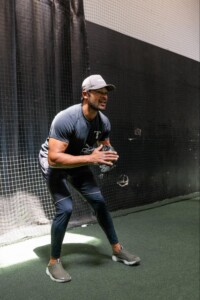
The Ultimate Guide To Selecting The Right Baseball Glove
The baseball glove is one of the most important pieces of equipment that baseball players own. Regardless of your age, skill level, or what position you play, selecting the right baseball glove is absolutely crucial to succeeding as a player!
This article is dedicated to being the ultimate guide to selecting the right baseball glove. We highlight different types of gloves, important factors to consider upon purchase, as well as some baseball glove care tips and tricks.
Factors To Consider When Selecting A Baseball Glove
Consider these factors when selecting a baseball glove to suit your needs.
Proper Fit
Control: A properly fitted baseball glove will give players more control than one that is too small or too large. Poorly fitted gloves will make it harder to get a good grip on the ball, which can lead to more unforced errors on the field.
Protection: Protecting your catching hand from injury is one of the most important reasons to make sure you select a well-fitted baseball glove. Loose or excessively tight-fitting gloves can make players more prone to injury catching high-velocity baseballs.
Youth baseball gloves will typically range in length from 10.75” – 11.75”. Try on multiple gloves and find the size that fits best to your hand.
Comfort & Feel
The goal is to make your baseball glove feel like a true extension of your body, in this case, your catching hand. Choosing a glove that is comfortable and feels natural on your hand will make you more responsive and accurate with your glove movements.
Position-Specific Design
There are different glove designs that have been developed specifically to meet the needs of different positions on the baseball field. Outfielders typically have larger gloves with a deeper pocket for catching fly balls, as opposed to an infielders glove with a smaller build and more shallow pocket.
For players who are sticking to one position, or set of positions (infield/outfield), get a position-specific glove for the best results.
Players who are moving around and playing multiple different positions can also opt for what is called a “utility glove”. These are designed for multi-position players who need a glove that can handle both infield and outfield style play.
Durability
Types Of Baseball Gloves
Infield Glove
-
- Smaller in size compared to outfielders glove
- Shallow pocket
- More of a snug fit
- Lightweight
- Open webbing
Outfield Glove
-
- Larger in size compared to infielders glove
- Deeper pocket
- Slightly heavier weight (heavier duty materials)
- Closed webbing
Catcher’s Mitt
-
- Extra padding
- Wider surface area
- Unique shape
- Thick, extra-durable materials
Pitcher’s Glove
-
- Tight mesh webbing to conceal ball & pitch grip
- High-quality leather materials
- Unique shape for control and comfort
First Base Mitt
-
- Larger than other gloves
- Spaced webbing
- Unique shape for scooping ground balls and corralling wild throws
Care & Maintenance Of Baseball Gloves
Here are a few quick care & maintenance tips to help keep your glove in great condition.
Break It In
New gloves will need to be broken in and formed to ensure a nice comfortable fit, so make sure to use it as often as possible right away for practise, conditioning, and exercises. Use a glove conditioning oil and/or a glove mallet to help break-in the padding and create a nice form to your hand.
Store It Properly
When you aren’t using your glove, store it in a cool and dry location that is away from any direct sunlight or excessive heat. Use a modest amount of glove conditioner and/or glove oil to prevent it from drying out and cracking.
Repair Regularly
Staying on top of repairs to your baseball glove will help increase its lifespan and ensure it stays in tip top condition. Practice makes perfect applies to both your skills and your glove care routine. The most important parts of the glove to repair/replace include:
-
- Laces
- Stitching
- Webbing
Avoid the need to replace and repair your glove by taking good care of it, using oils and conditioners when necessary, and storing it in a suitable location.
Conclusion
We hope this guide helps baseball players select the right glove for their needs, and provides some useful care and maintenance tips to keep it in great shape. Treat your glove with love and it will return the favor on game day!


